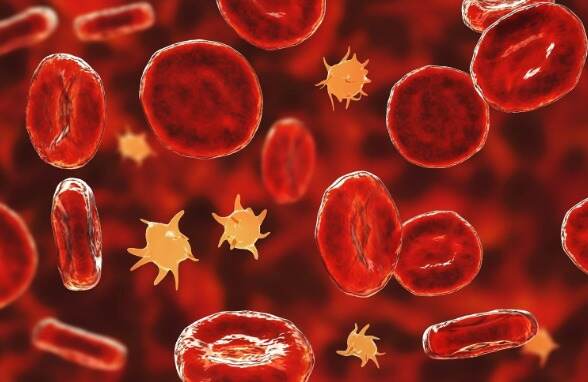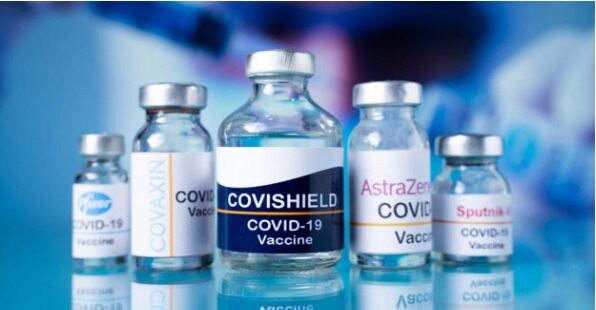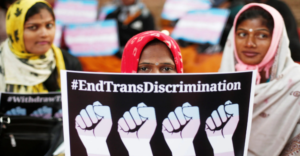INTRODUCTION
The battle against the COVID-19 pandemic has initiated a race to develop and distribute effective vaccines worldwide for various companies. Among the arsenal of vaccines deployed, Covishield, developed by AstraZeneca in collaboration with the University of Oxford, has played a pivotal role in India’s vaccination campaign. However, recent revelations from AstraZeneca have brought attention to a rare side-effect associated with Covishield, instigating a debate about the safety of the said vaccine in India.
THE SIDE EFFECT
Recently, AstraZeneca accepted in court documents that its vaccine Covishield can contain the side effect of a rare and serious blood clot. Amidst this confession, there have been various controversies and public outrage in this matter.
The Oxford-AstraZeneca Covid vaccine, sold as Covishield in India and Vaxzevria in Europe is a viral vector vaccine developed using the modified chimpanzee adenovirus ChAdOx1. It was manufactured and marketed in India in partnership with the Serum Institute of India (SII) and was widely administered in the country — to almost 90 percent of the Indian population.
Thrombosis Thrombocytopenia Syndrome (TTS), a rare condition involving blood clots, is a potential adverse effect of AstraZeneca’s COVID-19 vaccine. Medical Professionals stated that the drawbacks of the vaccination far surpass its benefits.
WHAT IS THROMBOSIS THROMBOCYTOPENIA SYNDROME?

Thrombosis Thrombocytopenia Syndrome (TTS) is a rare but serious medical condition characterized by the formation of blood clots in the body combined with a low count of platelets, which are blood cells essential for clotting. This syndrome has recently garnered significant attention due to its association with certain COVID-19 vaccines, notably the AstraZeneca vaccine.
TTS typically manifests as blood clots in unusual locations, such as the brain, abdomen, or veins. Additionally, individuals with TTS often experience a decrease in the number of platelets in their blood, a condition known as thrombocytopenia. The combination of blood clots and low platelet levels can lead to severe complications, including stroke, heart attack, or organ damage.
While the exact cause of TTS is still under investigation, it is believed to be linked to an immune response triggered by certain medications or vaccines. In the case of COVID-19 vaccines, including AstraZeneca’s, there have been reports of TTS occurring predominantly in younger individuals, particularly women, within a few weeks of receiving the vaccine. The mechanism by which these vaccines may lead to TTS involves the generation of antibodies that inadvertently activate platelets, leading to abnormal clot formation.
The incidence of TTS associated with COVID-19 vaccines is exceedingly rare, occurring in a small fraction of vaccinated individuals. However, its potential severity has prompted health authorities and medical professionals to monitor and investigate cases of suspected TTS closely. Early recognition and prompt treatment are essential for improving outcomes in individuals affected by this syndrome.
As with any medical intervention, the benefits and risks of COVID-19 vaccination must be carefully weighed. While the risk of developing TTS after vaccination is low, individuals should be aware of the signs and symptoms associated with this condition, such as severe headaches, abdominal pain, shortness of breath, or unusual bruising, and seek medical attention if they occur.
Efforts to better understand TTS, its underlying mechanisms, and risk factors are ongoing. Meanwhile, regulatory agencies and healthcare providers continue to evaluate and update recommendations regarding the use of COVID-19 vaccines to ensure their safety and effectiveness in mitigating the spread of the virus while minimizing potential risks to public health.
THE DEVELOPMENT OF COVISHIELD IN INDIA
AstraZeneca, a leading multinational pharmaceutical company founded through the merger of Astra AB of Sweden and Zeneca Group PLC of the United Kingdom in 1999, has established itself as a key player in the global pharmaceutical industry, focusing on the development of medicines in various therapeutic areas, including oncology, cardiovascular, respiratory, and as well as vaccines.
The journey towards the development of Covishield, the COVID-19 vaccine created by AstraZeneca in collaboration with the University of Oxford’s Jenner Institute and Oxford Vaccine Group, began amidst the unprecedented challenges posed by the COVID 19 pandemic in early 2020.
The collaborative effort aimed to bring together and develop innovative vaccine technologies, including a viral vector platform based on a weakened version of a common cold virus (adenovirus), to deliver genetic material encoding the spike protein of the SARS-CoV-2 virus, stimulating an immune response in vaccinated individuals.
The development process for Covishield involved rigorous processes including multiple phases of clinical trials to evaluate its safety, efficacy, and immunogenicity. These trials, conducted in diverse populations across different regions of the world, provided crucial data on the vaccine‘s performance and paved the way for improvement.
In India, the Serum Institute of India (SII), the world’s largest vaccine manufacturer took up this role in the development and production of Covishield. In addition to its partnership with AstraZeneca for manufacturing the vaccine, SII collaborated closely with Indian regulatory authorities in the approval process for emergency use authorization.
The approval of Covishield for emergency use by the Indian drug regulatory authority in January 2021 marked the beginning of India’s fight against the COVID-19 pandemic because of its affordability, scalability, and various advantages
Since its introduction, Covishield has been deployed extensively across India, with millions of doses administered to frontline healthcare workers, elderly populations, and individuals at high risk of exposure to the virus. However, reports of adverse events following vaccination, including rare cases of Thrombosis Thrombocytopenia Syndrome (TTS), have initiated controversies and raised questions about the vaccine‘s safety profile.
CONCLUSION
In summary, AstraZeneca admitting Covishield can have a rare side effect has made many people question its safety. This side effect, called Thrombosis Thrombocytopenia Syndrome (TTS), is when blood clots form and platelet levels drop. While Covishield has been crucial in India’s fight against COVID-19, reports of TTS have led to worries about its safety. It’s important to keep checking how safe vaccines are and to be open about any issues to build trust in vaccination.
-ANANYA GUPTA
MUST READ: CONTRACEPTION BREAKTHROUGH: CANADA ANNOUNCES FREE ACCESS FOR WOMEN





